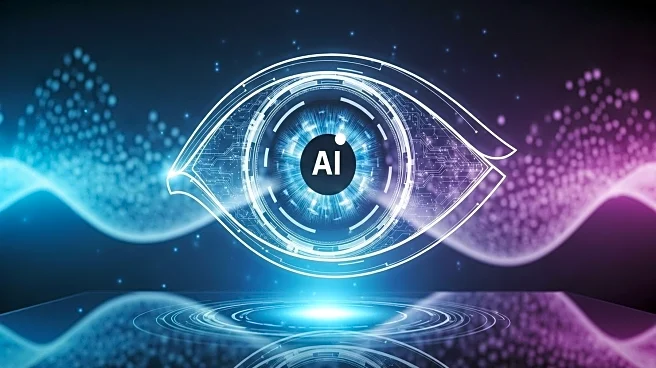What is the story about?
What's Happening?
Researchers in London have introduced an AI system capable of predicting which patients with keratoconus, a degenerative eye disease, will require surgery. The system analyzes over 36,000 eye scans to distinguish between patients needing urgent treatment and those who can be monitored safely. This development was presented at the European Society of Cataract and Refractive Surgeons meeting, showcasing the AI's ability to accurately forecast disease progression and potentially prevent blindness by guiding early treatment.
Why It's Important?
The introduction of AI in predicting eye disease progression represents a significant advancement in personalized medicine. By accurately identifying patients who need immediate intervention, the system can prevent unnecessary procedures and focus resources on those at high risk, potentially saving vision and reducing healthcare costs. This development highlights the growing role of AI in healthcare, offering a model for integrating technology into clinical decision-making processes to improve patient outcomes.
What's Next?
The AI system will undergo further validation and safety testing before it can be widely implemented in clinical settings. Researchers and healthcare providers will need to ensure the system's accuracy and address any potential biases. If successful, this technology could be integrated into routine eye care, setting a precedent for similar AI applications in other medical fields.
Beyond the Headlines
The use of AI in healthcare raises ethical and regulatory questions, particularly concerning data privacy and the potential for algorithmic bias. As AI systems become more prevalent, there will be a need for robust oversight to ensure they are used responsibly and equitably.

















